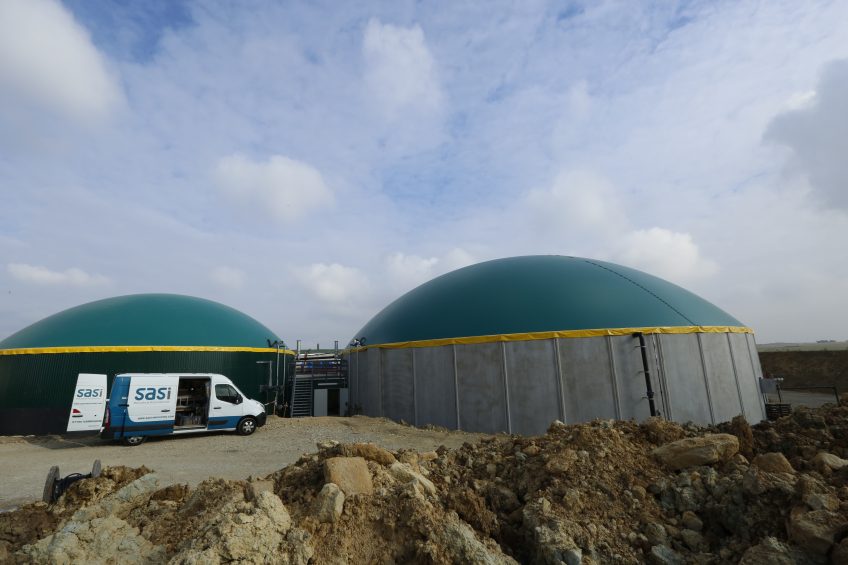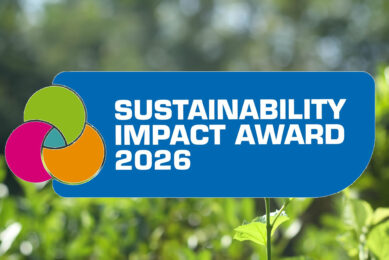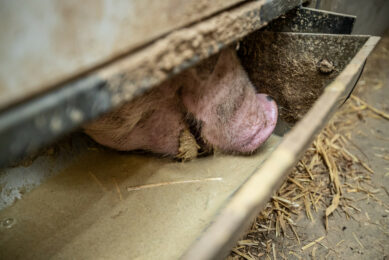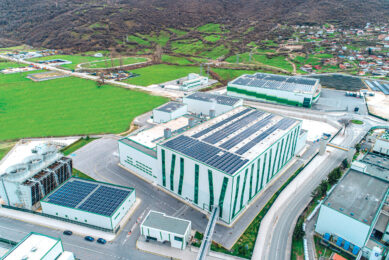Converting pig carcasses into biogas

UK scientists have found that bio-reduction through anaerobic digestion could provide a viable solution for on-farm storage or disposal of porcine carcass material.
The research was carried out by well-known agricultural college Harper Adams University, in Newport, Shropshire, United Kingdom.
Reducing the costs of dead pigs
The solution could reduce the costs of fallen stock collection on some farms, the researchers found, and reduce the movement of vehicles between farms – potentially improving bio-security and carbon emissions.
A 2nd stage of research has now been completed at the university, to gather evidence on the efficacy and safety of the process.
Reducing pathogens, creating biogas
Initial research established that the anaerobic digestion process could significantly reduce a number of particularly resilient pathogens in porcine carcass material, while at the same time generating considerable quantities of biogas, which could be used to generate heat or electricity.
However, the 2nd stage of the project showed that anaerobic digestion alone did not sufficiently reduce pathogens and pre-sterilisation of the carcase material is needed before it goes into the anaerobic digestion plant. The research also showed that pig slurry can be effectively utilised as a co-substrate (a product used alongside another material) to aid the process.
Testing the stability of the protocol
In a press release, Dr Robert Wilkinson, principal lecturer and researcher, explained, “The results of this project confirm that porcine carcass material can be effectively digested by anaerobic digestion, with high levels of biogas and CH4 production and carcase reduction.”
He added, “However, further research is required to test the stability of the protocol over a longer period of time and to evaluate the residue produced as a potential fertiliser or soil improver. In addition, the data obtained could be used to inform a desk-based study to design and evaluate the cost effectiveness of an on-farm pilot-scale system.”
Legislation prohibits burying dead pigs
Sue Rabbich, environment and buildings projects manager for the Agri & Horticultural Development Board (AHDB) Pork, added, “Following the BSE epidemic in cattle, and other livestock diseases, EU legislation prohibits farmers from burying fallen stock on-farm.”
Rabbich continued to say, “Instead, they must be collected for disposal by approved methods such as incineration or rendering. The development of sustainable on-farm alternatives for storage or disposal of fallen stock could be of significant benefit to the agricultural industry.”
The research was jointly funded by the UK Department for Environment, Food & Rural Affairs (Defra) and AHDB Pork.











